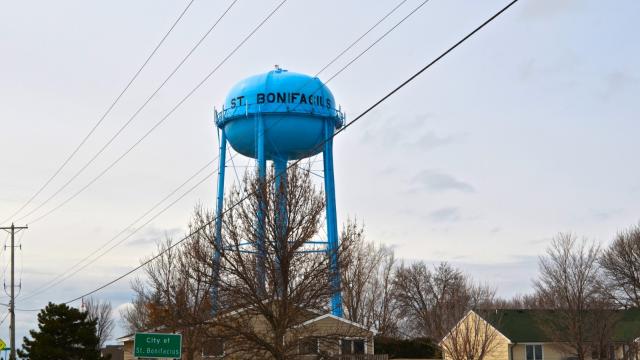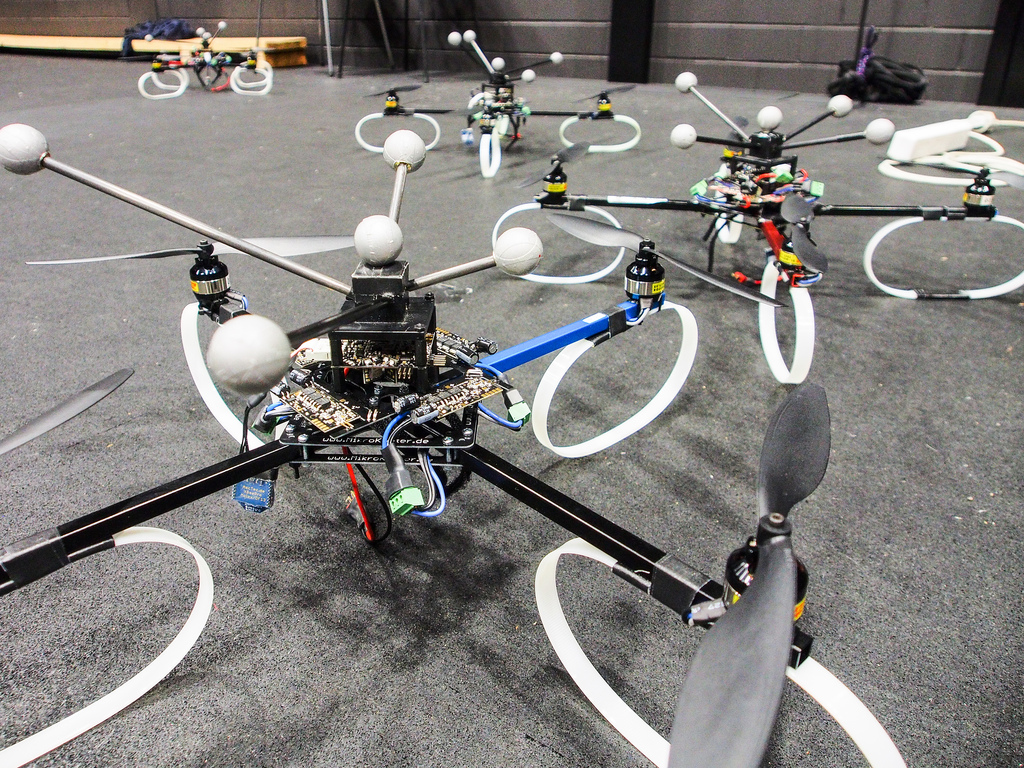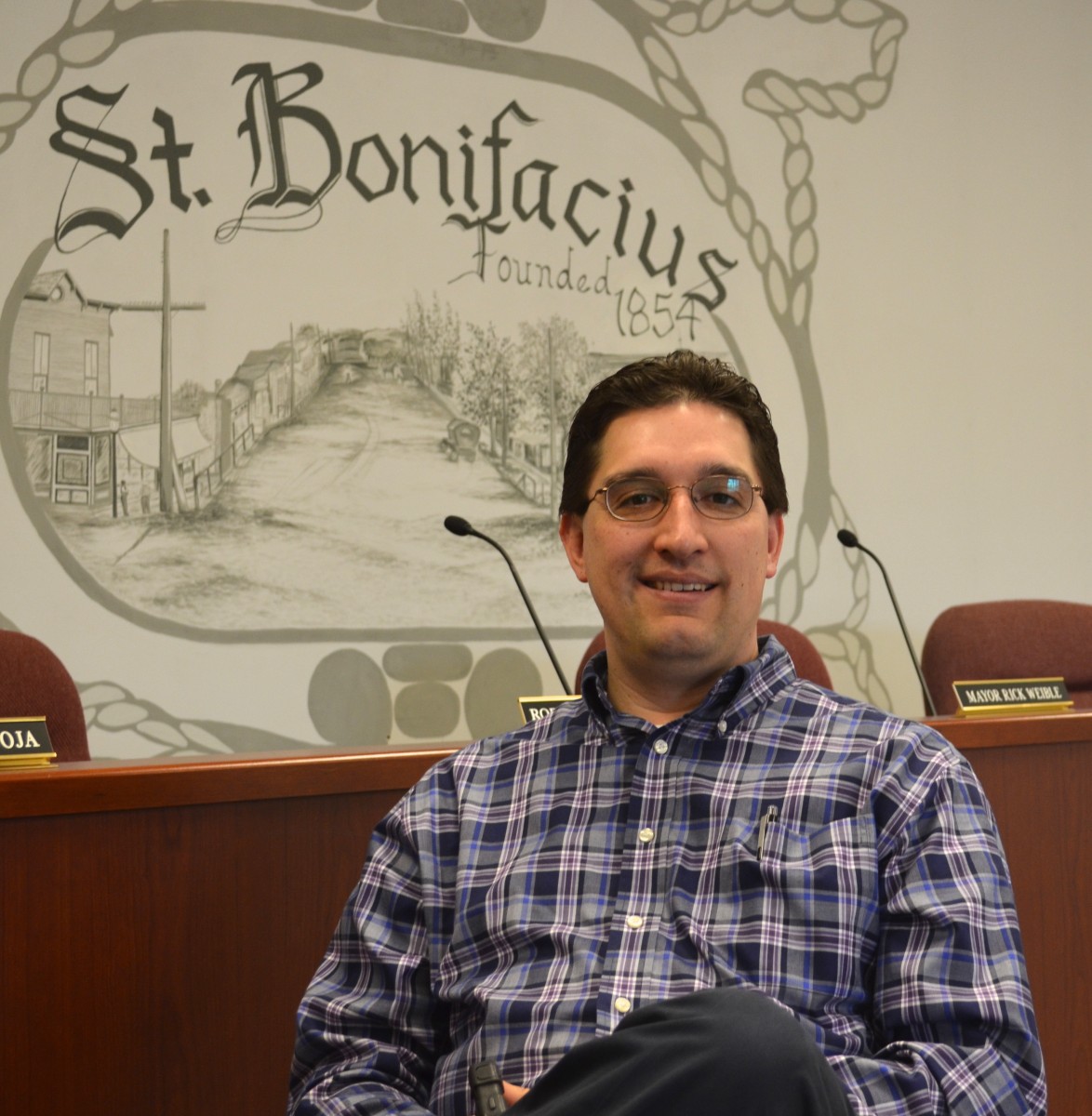
With a lack of federal and state procedures and policies regarding the use of unmanned aerial vehicles (UAVs) — more commonly known as drones — some cities have taken it upon themselves to pass legislation regarding the use of drones to protect the privacy rights of its citizens. One of the first cities in the United States to pass a drone ban was the small town of St. Bonifacius, Minn.
Located about 25 miles outside Minneapolis, St. Bonifacius may be just one square mile in size, but was the first city in Minnesota to pass a ban.
Since the city only has control of the airspace up to 400 feet, the drone ban does not affect higher altitudes that are managed by the federal government. Other exceptions include drones used in cases of emergencies, search warrants, as well as individuals using drones over their own property.
Rick Weible is the mayor of St. Bonifacius, Minn. He, along with two city council members Joe Arwood and Shawn Ruotsinoja, were behind the legislation that banned drones in the city. Weible told Mint Press News that the St. Bonifacius city council takes their duty to uphold their constituents constitutional rights seriously, and were concerned about how drones were being used by the federal government.
“It’s my job to defend the constitution,” Weible said. Pointing to the Fourth Amendment, he added that government agencies shouldn’t be able to go onto anyone’s property without any regulation, asking, “Would you want someone looking through your windows?”
Weible says after it was revealed that President Obama had utilized drones to go after American citizens without due process in foreign countries, he was concerned. “My understanding of the constitution,” he said, “is that there’s a process you have to follow. You’re innocent until proven guilty even if you’re living abroad.”
What Weible was referring to was the death of a 16-year-old American by a drone in Yemen.
He says that in order to protect the public, the city passed a resolution and ordinance on drones — all before Rand Paul’s notorious filibuster and the issue of drone use became a national debate.
Weible says the approach St. Bonifacius took to ban drones was good, since it did exactly what he wanted — it opened up a debate, not just in the city, but statewide.
Policies in place
When it comes to an officer-involved shooting, there are policies in place that outline what steps should be taken such as placing an officer on administrative leave, Weible says, but asks: Why don’t we have any policies and regulations about the use of drones?
As Mint Press News previously reported, FBI whistleblower Coleen Rowley, who is well-known for exposing intelligence failures before the 9/11 attacks, applauded St. Bonifacius’ efforts to ban drones.
At an anti-war and anti-drone rally on April 6, Rowley said “[St. Bonifacius] realized drones are targeted on us and have banned drone surveillance. They need to do this in Minneapolis and every other city.”
But did Rowley’s praise come too soon?
Though there is a drone ban right now in St. Bonifacius, Weible says he is not saying no completely to drones — instead he wants to look at the appropriateness of using drones.
“If there was a way we could have an infrared drone — what an easy way to quickly go around a house and fight a fire!” Weible says he would support that technology. He said that right now the fire department has hand-held technology that they use to determine whether or not someone is in a burning building and firefighters have to run around the home in their heavy gear.
With the use of infrared technology, Weible says firefighters would be able to pinpoint whether or not someone was in a corner. While Weible seems open to the use of drones to help with some law enforcement services, he doesn’t think drones should replace daily police tasks.
Since the town of St. Bonifacius is so small, the town doesn’t have it’s own police department. Instead the city works with the city of Minnetrista to provide active patrol services. Crime is low in the town of about 2,300 persons, which he says allows a different discussion to occur than in cities such as Chicago that are infamous for gun violence.
Accepted use of drones
Other than using infrared drones to aid firefighters, Weible says he would feel comfortable allowing the use of drones in order to protect the lives of officers if there was a safety issue. He gave examples of having robots go into potential meth labs or a hostage situation. A manhunt or a lost child were other acceptable uses Weible had for drones.
But as evidenced by the Los Angeles Police Department (LAPD), who relied on drones to track down ex-policeman Christopher Dorner, the police department had multiple incidents of “mistaken identity,” even with the technology.
He shared that there quite a few children diagnosed with autism in the surrounding cities, and the use of a drone to try and find a lost child would allow law enforcement to cover more area than having people line up and walk through a field.
Weible doesn’t see a need for weaponized drones, however — at least not in Minnesota.
Even in dangerous situations, Weible says weaponized drones don’t guarantee a better outcome than a police officer on the street. Using the example of the recent Boston Marathon bombings as an example, Weible explained:
“Let’s say you had 20 drones running the Boston Marathon. How is that better than any officer there? You had plenty of officers on the scene and fortunately you had so many medical people there that were able to save lives.”
Weible went on to describe how the security cameras at businesses surrounding the finish line where the bombs went off weren’t able to catch anything. “My gut just tells me that a weaponized drone wouldn’t have helped anyway in Boston.”
Minnesota Drone Ban?
Minnesota Sen. David J. Osmek is the co-author of bill SF1506, which would prohibit the use of drones for gathering evidence or information on individuals except for high-risk instances or after obtaining a warrant.
In a statement to Mint Press News, Osmek called the bill “the beginning point of our legislative discussion on the use of drones, from both a public and private perspective.”
“I have been contacted by a number of constituents which have contacted me with concerns over the uses of drones, which can be an invasion of privacy rights. However, we also need to be careful to allow a lawful use of small aircraft that people have used for years as a hobby.
“There are certainly appropriate uses for drones, but this evolving technology needs to be balanced with the rights of the public to not have public agencies or private citizens use this equipment to violate our Constitutional protections.”
Mint Press News requested a statement from Minnesota’s Democratic Gov. Mark Dayton, but his press secretary Katharine Tinucci said his office has yet to comment on the drone ban.
Like Minneapolis, St. Bonifacius is located in Hennepin County. Rich Stanek is the Hennepin County Sheriff and a friend of Weible’s. At a Minnesota Republican Party Convention, Weible says Stanek teased him about the ban but still managed to convince Stanek that public discourse was necessary regarding drone policies and procedures since there is such a broad spectrum for their use.
“Administrative leave and the internal review process for officer-involved shootings wouldn’t necessarily be applied to drones,” said Weible. “The public needs to understand the technology. He got that.”
Earlier this year, Stanek reiterated a similar statement while talking to Minneapolis’ Star Tribune. “This is great technology, but we’ve got a keen interest in protecting privacy and civil rights for our citizens,” he said. “The question is how we’ll do this and balance it all out.”
Since drones are a federal tool as well, Mint Press News asked Weible if he has received feedback from anyone in Washington. Weible says he occasionally talks with Rep. Erik Paulsen (R-Minn.), who offered that lawmakers in Washington thought it was interesting, but didn’t know how the Department of Homeland Security would respond.
Mint Press News requested a statement from Paulsen; our requests were not returned.
Community ReactionAfter the ban was announced in March, Weible says the response from the public has been fairly supportive: “Most of the folks in town say ‘yeah, it’s actually a very interesting issue — I’m glad you brought it up.’”
Weible says he only received two complaints about the ban from individuals who were not living in St. Bonifacius.
But when Mint Press News tried to find residents to respond to the drone ban, we had a difficult time finding anyone who even knew about it.
Brian Ackerman is a St. Bonifacius resident. He studied aerospace engineering before moving to the small town about six years ago. He called the drone ban stupid and said that based on the language of the bill, flying remote control airplanes or toy helicopters is also prohibited.
“If it’s off your property you can’t fly it,” he said, adding that there’s a big loophole in the ban that bans anything that needs aerodynamic lift.
“Me and the guy that owns [local coffeehouse Americano] are the only people talking about it,” said Ackerman. “People living outside of St. Boni are laughing at it,” since it’s such a small town and only bans drones up to 400 feet.
But City Council member Joe Arwood says that is completely inaccurate and is a misunderstanding of how the ordinance was written. “That was actually discussed as we did this,” Arwood said, explaining that the city didn’t want to prevent people from using helicopters and airplanes on their private property and in city parks.
“Peeping Tom has gone high-tech,” Arwood said. “In 2013 any person with about $250 can walk down to Verizon and buy a drone with a high-def camera and record video. When you have a lack of direction when it comes to a new technology like this, cities need to set some common-sense limitations in places.”
Arwood said that as this technology becomes cheaper and more accessible to individuals, there had to be an effort to secure privacy for citizens. “We owe it to them to protect their privacy from the guy that lives down the street to fly over people’s houses and women laying out in the sun.”
But Arwood’s reasons may not be enough to convince all residents such as Ackerman. “I don’t think anyone’s going to go around spying on anyone. And it’s St. Boni — you can look inside people’s windows or knock on the door if you want to see in someone’s house,” he said.
Originally published by MintPress News.
3 WAYS TO SHOW YOUR SUPPORT
- Log in to post comments
















